Text
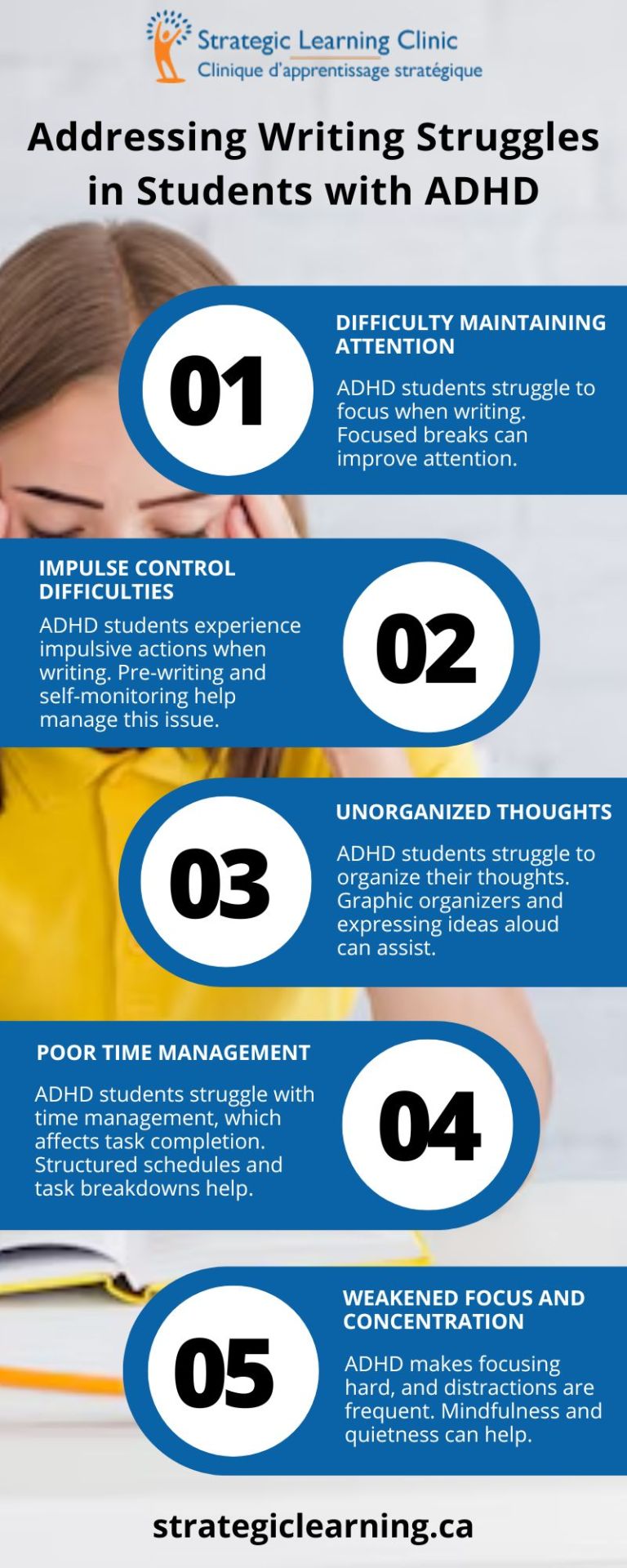
Addressing Writing Struggles in Students With ADHD
Assisting students with ADHD to write effectively involves implementing strategies such as short breaks, pre-planning, organizational tools like charts, structured schedules, and mindfulness practices. These methods support focus and enhance academic performance, providing valuable assistance for students with ADHD in their writing pursuits.
1 note
·
View note
Text
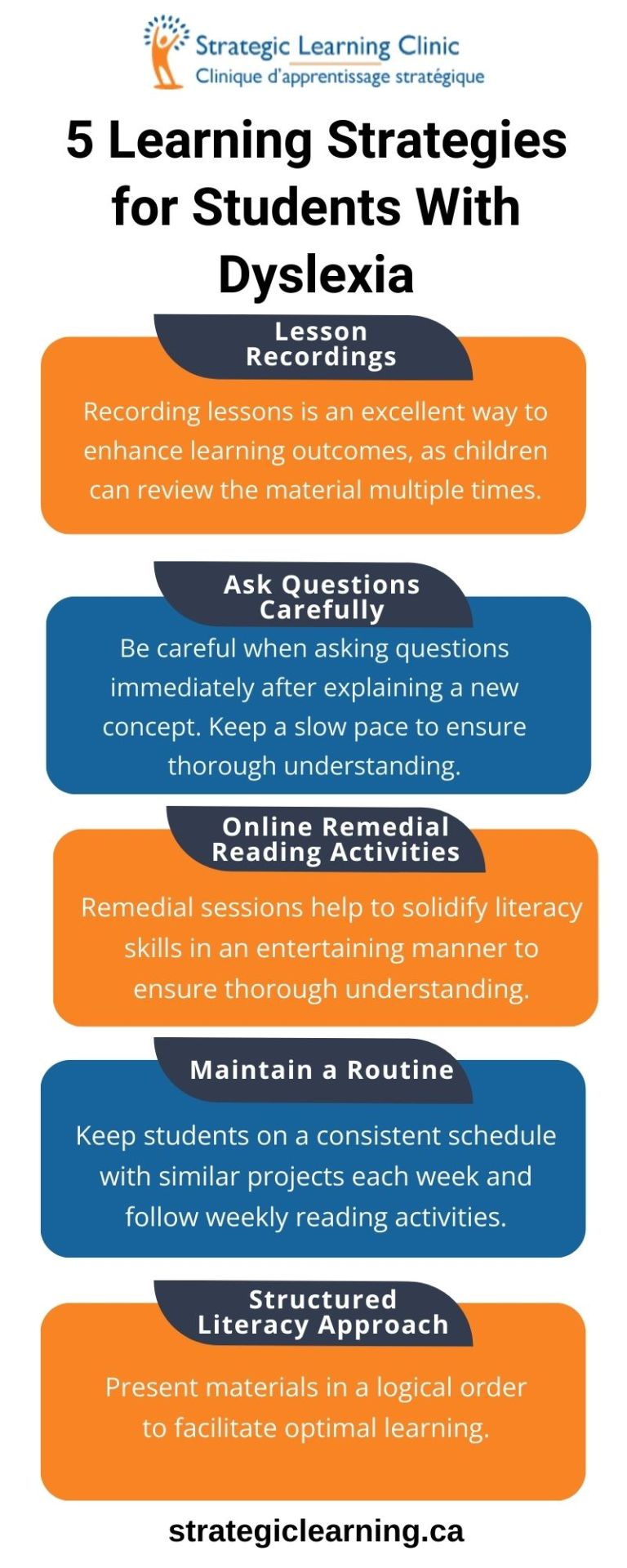
5 Learning Strategies for Students With Dyslexia
Improve dyslexia learning with lesson recordings, careful questioning, structured literacy, online reading activities, and consistent routines. Access dyslexia reading programs and tutoring centers for further support.
0 notes
Text
Recognizing Various Learning Disabilities: Identifying Common Signs in Children
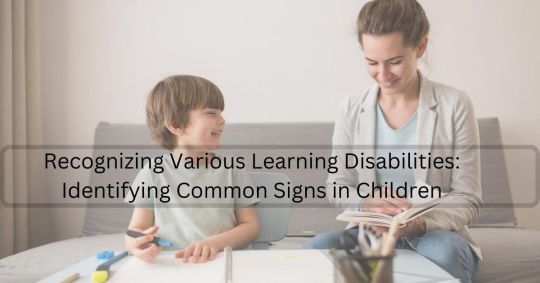
Addressing learning disabilities is challenging for both children and their parents. The key to addressing and managing these hurdles lies in personalized learning interventions. Before undertaking support programs, parents need to determine whether their child has a learning disability and, if so, identify the specific nature of the disability.
In this blog, we delve into the various types of learning disabilities and examine the common signs children exhibit in each disability.
What Are Learning Disabilities?
Learning disabilities are neurological challenges that affect a child’s ability to acquire specific academic and social skills. These skills can range from reading to writing and math.
The following are some distinctive characteristics of children with learning disabilities:
Children with learning disabilities do not lack intelligence. However, they have difficulty interpreting certain information, as their brains process information differently.
Learning disabilities are lifelong conditions. However, one can improve and manage their challenges via appropriate strategies.
Most learning disabilities tend to run in families and are often diagnosed in childhood when gaps in skill development become apparent.
Children with learning disabilities can achieve academic and career success comparable to their peers with the help of individualized teaching methods, assistive technologies, etc.
Arrangements in school, work, and home settings are essential to foster independence and allow children with learning disabilities to demonstrate their abilities and thrive.
Types of Disabilities and Their Symptoms
Different types of learning disabilities have different symptoms. Symptoms can also vary from one child to another. Therefore, understanding these symptoms is crucial for successfully tutoring students with learning disabilities to provide each child with the most optimal recipe for success.
The most common learning disabilities are as follows:
Dyslexia
Dyslexia is a learning disability that makes reading and spelling difficult for children. Children with this neurological condition find it hard to recognize speech sounds and relate them to letters and words in writing. Dyslexia causes slow, inaccurate, and laboured reading for children.
Signs of Dyslexia
Children with dyslexia may exhibit all or most of the following signs.
Struggle to associate the sounds of letters, impacting reading and spelling abilities. Children also mispronounce words or have trouble decoding unfamiliar terms.
Slow reading, full of hesitations and word repetitions.
Difficulty in recognizing and remembering sight words, affecting overall reading speed and comprehension.
Frequently misspelled words, even after repeated exposure.
Struggles with consistent application of spelling rules and patterns.
Confusion with letter reversals (e.g., “b” and “d”) or word order and difficulty in discriminating left from right, impacting writing and the directionality of text.
Challenges remembering sequences and recalling the order of letters, numbers, or steps in a process.
Dysgraphia
Dysgraphia is a learning disability associated with writing. Children with dysgraphia have challenges with handwriting, spelling, organizing ideas, and composition. Although children with dysgraphia have average intelligence, they have below-average writing abilities.
Signs of Dysgraphia
The most common signs that children with dysgraphia exhibit are as follows:
Illegible handwriting that is messy and difficult to read, with inconsistent letter sizes, irregular spacing, and poor penmanship.
Difficulty putting thoughts into written words and organizing ideas on paper; sentences are usually incomplete or disjointed.
Poor spelling skills based on the child’s age, education level, or verbal skills.
Children with dysgraphia try to avoid activities that require writing or show reluctance to put enough effort into writing.
Issues with fine motor skills for handwriting, such as improper grip on pens and odd wrist, body, or paper positioning. Handwriting appears very laborious.
Struggle taking notes or copying materials accurately from a board, projector screen, or book.
The writing rate is meagre compared to other children of the same age despite being equally or more intelligent.
Dyscalculia
Dyscalculia is a learning disability that affects a child’s ability to understand numbers and mathematical concepts. Children with dyscalculia have trouble counting, performing calculations, measuring, and applying math strategies.
Signs of Dyscalculia
Persons with dyscalculia exhibit a wide range of signs and symptoms. Some of the most common signs of dyscalculia are as follows:
Difficulty understanding number concepts and symbols.
Struggle with counting objects, recognizing written numbers, etc.
People with dyscalculia take more time when solving arithmetic problems.
Challenges applying mathematical logic and issues comparing numbers, estimating quantity, telling time, and using money functionally.
Trouble grasping the concepts of spatial relationships, measurement, data interpretation, etc.
Difficulty memorizing and recalling math facts like addition/subtraction tables or formulas.
Frequent calculation errors, even on simple problems.
Children with dyscalculia may continue to find math challenging even after dyscalculia intervention programs and support.
Auditory Processing Disorders
Auditory processing disorders impact how the brain processes sounds entering a person’s ears, leading to various learning challenges. These disorders can cause a variety of learning challenges. The difficulties typically associated with auditory processing disorders include trouble understanding speech amidst background noise, following directions, reading, language acquisition, speaking, etc.
Signs of auditory processing disorders
While there are different signs and symptoms for auditory processing disorders, here are some of the most common:
Difficulty understanding speech in noisy environments like classrooms or public places.
Frequently ask others to repeat themselves and may incorrectly hear words and phrases, leading to confusion.
Delayed spoken language and speech development compared to peers.
Poor listening skills and an inability to follow multi-step directions in sequence.
Difficulty locating the sources of sounds.
Listening fatigue in loud places, as APD requires effort and mental energy, which makes children tired.
Sensory Processing Disorder
Sensory processing disorder (SDP) is a group of conditions that affect how the brain interprets and processes sensory inputs. People with SPD usually have trouble appropriately modulating, discriminating, coordinating, or processing sensory information received from a person’s five senses, also potentially leading to severe executive functioning disorders in the future.
Signs of sensory processing disorders
Children with sensory processing disorders may exhibit diverse signs and symptoms. Here are a few common signs to be aware of:
Extreme sensitivity to the touch or texture of clothes, etc. Often a dislike towards cuddling.
High pain tolerance sensitivity to hot and cold temperatures. This also may lead to self-inflicted injuries.
The exertion of too little/too much pressure while holding objects, pencil grip, slamming doors, etc.
The ability to endure many spinning motions without dizziness or nausea.
Limited body awareness, leading to frequent tripping, poor coordination, difficulty navigating surroundings, etc.
Attention Deficit Hyperactivity Disorder
Attention Deficit Hyperactivity Disorder (ADHD) is a neurodevelopmental disorder characterized by challenges with inattention, hyperactivity, and impulsivity. Children are unable to pay attention and control impulsive actions.
Signs of Attention Deficit Hyperactivity Disorder
There are several signs that a child with ADHD may display. Some of the most common symptoms are as follows:
Children with ADHD are easily distracted. They are also forgetful and find it hard to remain seated or focus on single tasks for long.
People with ADHD are unable to stick to routines and are often late or forgetful regarding appointments. ADHD affects time management, organization skills, etc.
Frequent hot temper, mood swings, and poor frustration tolerance, mainly when accomplishing tasks that demand consistent, focused mental effort.
Children with ADHD make careless, silly mistakes. These mistakes can often continue even after being corrected.
ADHD may also affect executive functioning skills, which can further complicate the issue and make treatments challenging.
How to Treat Learning Disabilities in Children
Providing adequate support and learning opportunities is crucial to help children with learning disabilities. Focused interventions are necessary to meet the specific needs of the children as per the nature of the disability.
Children with dyscalculia require programs focusing on math abilities, while children with dyslexia need reading programs.
Here are some of the most effective ways to help children with learning disabilities:
Identify the Child’s Learning Style
When a child has a learning disability, they usually have their own methods or style of learning. First, work to understand their learning modes to help improve their learning.
When setting up a child at a tutoring center for additional learning support, share these details with the teachers for a better learning experience.
Create Suitable Educational Therapy
The first step to helping children with learning disabilities is understanding their challenges. Once understood, work with professionals, including special education teachers, therapists, or tutoring centers, to develop individualized education programs.
These programs must have customized learning plans, tools, goals, and adaptations for the children.
Ensuring plenty of explicit learning instruction tailored to the child’s strengths is essential to compensate for weak areas.
Incorporate Behavioral Treatment
A considerable challenge most students face along with learning disabilities is the changes in their behaviour. Helping children manage and organize better will allow them to become more successful.
Use positive reinforcements to shape behaviour. Help children set routines, use visual cues, and eliminate unnecessary distractions.
Monitor any changes and use methods that work more efficiently and effectively.
Adaptive Skill Building
Supporting children with learning disabilities to build the skills they lack is an effective way to help them face their challenges.
For example, if a child lacks reading skills, create reading programs for kids to help them improve their skills. Often, it is necessary to break skills like reading and writing into multiple steps– teach them phonics and word patterns and help translate symbols.
These step-by-step processes will gradually improve children’s skills. Instead of building several skills simultaneously, tackle various skills separately and progressively.
Treat Any Issues Promptly
Children with learning challenges struggle to build social relations and interact with their peers. The life of a child with learning disabilities is tricky and could lead to mental distress, anxiety, depression, etc.
In such situations, seek professional medical attention. Take the child to counseling to help motivate and boost their confidence.
Depending on each situation, certain medications can help children stay focused and attentive longer to improve the quality of their learning.
Provide Unlimited Home Support
The best place to help a child with a learning disability become confident and motivated to learn is in their own home. Offer lots of positive support.
Coordinate efforts with educational therapists, learning experts at your child’s tutoring center, etc., to chart the child’s learning at home.
Show plenty of love, understanding, and patience. Keep clear communication with the child.
Ensure Personalized Support with Strategic Learning
One of the most promising ways to treat learning disabilities is to identify them as early as possible. Once correctly identified and diagnosed, the next step is to create a suitable learning environment and system to enable the children to overcome these challenges. A crucial element to remember is to develop highly tailored learning systems and intervention programs for each child unique to their learning challenges.
Strategic Learning ensures different types of assisted learning and intervention techniques for children with learning disabilities. With experienced and qualified professionals to help any child, Strategic Learning provides holistic growth for children.
Strategic Learning Clinic has worked with numerous children and parents to help overcome learning limitations using various processes and learning systems tailored to each child.
Source Url: https://www.atoallinks.com/2024/recognizing-various-learning-disabilities-identifying-common-signs-in-children/
0 notes
Text

5 Most Common Learning Disabilities Among Children
Curious about the challenges affecting a child's learning journey? At Strategic Learning, we provide support for children facing a range of conditions, from Dyslexia to ADHD. Gain insights into these learning differences and discover the significance of early recognition and personalized support. Your child's learning success is our priority.
0 notes
Text

Math Tutor For Students With Learning Disabilities | Strategic Learning Clinic
Contact the Strategic Learning Center to find the best math tutor for learning disabilities. Our comprehensive learning program, led by expert math tutors, caters to individual needs, creating a supportive environment. Visit the Strategic Learning Center, the best tutoring learning center in Montreal.
0 notes
Text
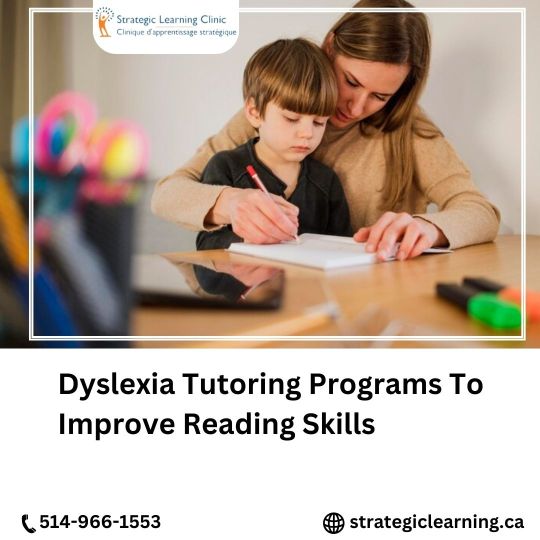
Dyslexia Tutoring Programs To Improve Reading Skills| Strategic Learning Clinic
Our Montreal tutoring services are tailored to assist individuals who can't read or experience difficulty reading. Our experienced tutors provide personalized support and effective strategies to enhance reading skills, promoting confidence and success in this crucial area. Book an appointment today!
0 notes
Text
Beyond Reading and Writing Challenges. Explore how dyslexia impacts math skills and learn about effective dyslexia intervention programs to improve a child’s math proficiency.
0 notes
Text
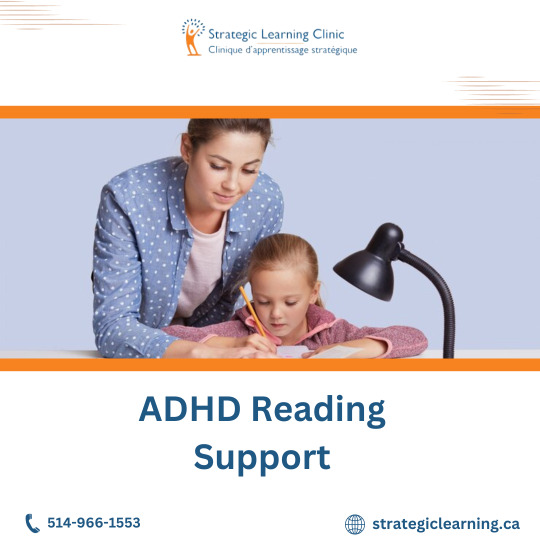
ADHD Reading Support at Strategic Learning Clinic
Strategic Learning Clinic provides specialized programs for ADHD reading challenges. Our experienced tutors offer tailored tutoring programs for students with learning disabilities to enhance their reading skills, academic performance, and overall confidence. Join us to empower students with ADHD in their learning journey.
1 note
·
View note
Text

Enriching Math and Reading Tutoring Programs For Kids In Montreal
Explore our comprehensive child's math and reading tutoring programs in Montreal at Strategic Learning. Our expert tutors offer personalized support to enhance your child's skills. Visit Strategic Learning Clinic to learn more about our reading tutoring programs.
0 notes
Text
Tutoring Programs For Children With Dyslexia

Dyslexia, a learning disorder affecting reading, writing, and spelling skills, has long posed challenges for both children and adults. However, the tides are turning as innovative techniques and tutoring programs revolutionize the treatment of dyslexia, igniting hope in individuals with dyslexia and their families.
Join us at the Strategic Learning Clinic as we delve into these remarkable advancements that have the power to unlock the potential of individuals with dyslexia. Brace yourself for a transformative journey of empowerment.
Discovering the Extraordinary: Breakthroughs in Dyslexia Treatment
The Orton-Gillingham Approach: Unleashing the Magic
Prepare to witness the marvel of the Orton-Gillingham approach, a method that has withstood the test of time and proven itself as one of the most effective treatments for dyslexia. Created in the 1930s by Dr. Samuel T. Orton and Anna Gillingham, this structured, multisensory approach incorporates visual, auditory, and kinesthetic methods to teach phonics, decoding, and encoding skills.By tailoring instruction to individual needs, Orton-Gillingham tutors provide personalized support that addresses the unique challenges faced by students with dyslexia. With a systematic foundation in place, individuals can conquer their difficulties and become proficient readers.
Personalized Tutoring Programs: Ignite the Superpowers
Prepare to be amazed by the game-changing power of personalized tutoring programs for kids with dyslexia. These programs offer tailored attention and support, allowing students to progress at their own pace. These evidence-based strategies are designed to target specific areas of difficulty and enhance reading fluency, comprehension, and spelling skills.Empowered by trained tutors specializing in dyslexia, students build confidence and surmount challenges that once hindered their learning. The nurturing and supportive environment of one-on-one sessions paves the way for academic success, fostering a sense of empowerment in students.
Multisensory Learning Techniques: Stimulate the Senses
Get ready to be captivated by the multisensory revolution in dyslexia treatment, where multiple senses combine to create an immersive learning experience. Visual, auditory, and kinesthetic elements merge to provide dyslexic learners with a holistic approach to processing and retaining information. Skilled tutors trained in multisensory approaches craft dynamic lessons that incorporate visual aids, hands-on activities, and interactive exercises.Imagine tracing letters in the sand while simultaneously voicing the corresponding sounds—a multisensory adventure that not only enhances learning but also sparks creativity and self-expression.
Assistive Technology: Spark Innovation
Prepare to witness the power of assistive technology in opening new doors for individuals with dyslexia. Cutting-edge tools such as text-to-speech software, speech recognition programs, and dyslexia-friendly fonts have revolutionized accessibility and learning outcomes for dyslexic students. These technological advancements empower individuals to conquer reading and writing challenges, fostering greater independence and confidence.Picture text-to-speech software that reads aloud the text on a screen, ensuring comprehension even when reading poses a struggle. Envision speech recognition programs that allow students to dictate their thoughts and ideas, reducing reliance on traditional writing methods. With dyslexia-friendly fonts enhancing readability, reading becomes less daunting and more enjoyable.
Cognitive Training and Brain Plasticity: Enhance the Mind
Prepare to be amazed by the extraordinary ability of the brain to reorganize itself and create new neural pathways. Enter the realm of cognitive training programs that target the cognitive processes affected by dyslexia. These programs strengthen vital skills like working memory, attention, and processing speed—which are essential for reading and learning. Through targeted cognitive exercises and activities, individuals with dyslexia can enhance their cognitive abilities and overcome learning challenges.At the Strategic Learning Clinic, comprehensive tutoring programs for kids combine cognitive training and personalized support, harnessing the full potential of students with dyslexia.
Empower a Bright Future Today With the Strategic Learning Clinic
The breakthrough discoveries in dyslexia treatment—be it the Orton-Gillingham approach, personalized tutoring programs, multisensory learning techniques, assistive technology, or cognitive training—have transformed the landscape of dyslexia intervention. These advancements empower individuals with dyslexia to unlock their true potential and excel academically.
At the Strategic Learning Clinic, we specialize in tutoring students with learning disabilities, including dyslexia, and we stand at the forefront of providing comprehensive and effective support. By harnessing these innovative approaches and fostering a supportive environment, we create a brighter future for individuals with dyslexia, helping them overcome challenges and thrive in their educational journey.
Together, let’s champion dyslexia awareness, research, and intervention, ensuring that every individual with dyslexia receives the support they need to unlock their full potential. Join us in making a difference and empowering individuals with dyslexia to embrace their unique strengths and achieve success!
Reference URL:- https://strategiclearning.ca/blog/breakthrough-tutoring-programs-for-children-with-dyslexia-embarking-on-a-journey-of-empowerment
0 notes
Text
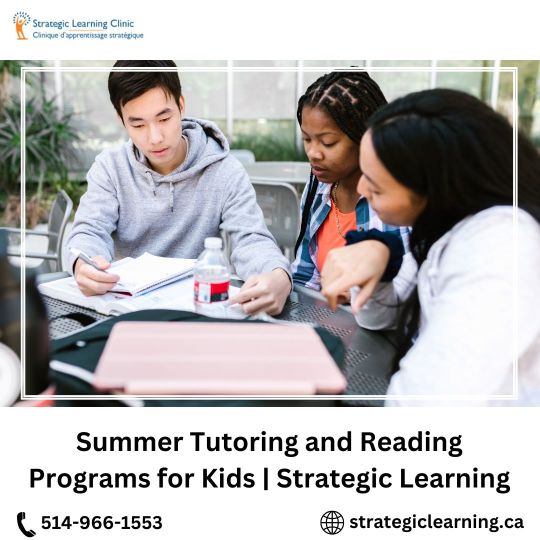
Summer Tutoring and Reading Programs for Kids | Strategic Learning
Explore our summer tutoring and reading programs for kids at Strategic Learning. Keep your child's academic progress on track with our engaging and effective summer tutoring sessions. Our experienced tutors create tailored learning experiences to improve reading skills and boost confidence. Learn more at Strategic Learning Clinic.
0 notes
Text

Effective Dyslexia Programs and Reading Comprehension Support | Strategic Learning
Strategic Learning offers specialized dyslexia programs and expert support for difficulties with reading comprehension. Our learning center is dedicated to helping individuals with dyslexia overcome challenges and improve their reading skills. Discover personalized strategies with the help of experienced tutors to guide you or your child toward academic success. Learn more about our dyslexia support today!
0 notes
Text

Expert Summer Tutoring Services to Boost Academic Success | Strategic Learning Clinic
Enroll your kids in summer tutoring programs in Montreal. Strategic Learning Clinic offers tutors for kids with personalized instruction to help students excel in their academics. Whether it's math, science, languages, or test preparation, our experienced tutors are here to guide and support your child's learning journey. Contact us today to schedule a session and give your child the extra boost they need this summer.
0 notes
Text
What are the Benefits of Online Tutoring for a Student?
The demand for online tutoring for kids has immensely sky-rocketed, with more and more children looking for extra help and quality online learning experiences. As a 5th-grade teacher, let me share the top benefits of online tutoring programs and how they benefit children:
Flexibility
There is a lot of flexibility in scheduling learning sessions in one-on-one online tutoring. It is easy to schedule a convenient time based on both the child's and the teacher's availability.
One-On-One Support
An online tutoring session is between the child and the tutor only. With a teacher's full attention, they can provide helpful guidance and feedback. Children can ask questions in real-time and work through complex subject matters instead of waiting for an opportunity to ask questions, as in the classroom setting.
Expert Help Anywhere!
The best part about online tutoring for kids is that it allows the students to eliminate geographical constraints and get help from expert tutors located virtually anywhere globally.
Learn at Their Own Pace
Online tutoring takes the pressure off to keep up with other students. In an online tutoring session, a child can learn at their pace, whether they grasp a concept quickly or require more time and practice.
Different Online Tutoring Programs For Kids
Unlike online classes scheduled by schools, online tutoring allows you to control how much schooling is required to cover the material.
I have been teaching at the Strategic Learning Clinic for the past year, and I have witnessed students' growth and improvement in school with the help of extra online tutoring sessions. Children are better equipped to excel in school after additional support is received. If you are looking for customized online tutoring programs for kids, the Strategic Learning Clinic should be your go-to choice!
0 notes
Text
Learn how to support children with dyslexia best. The Strategic Learning Clinic has specific learning programs for kids that can help. Read more at Strategic Learning Clinic
0 notes
Text
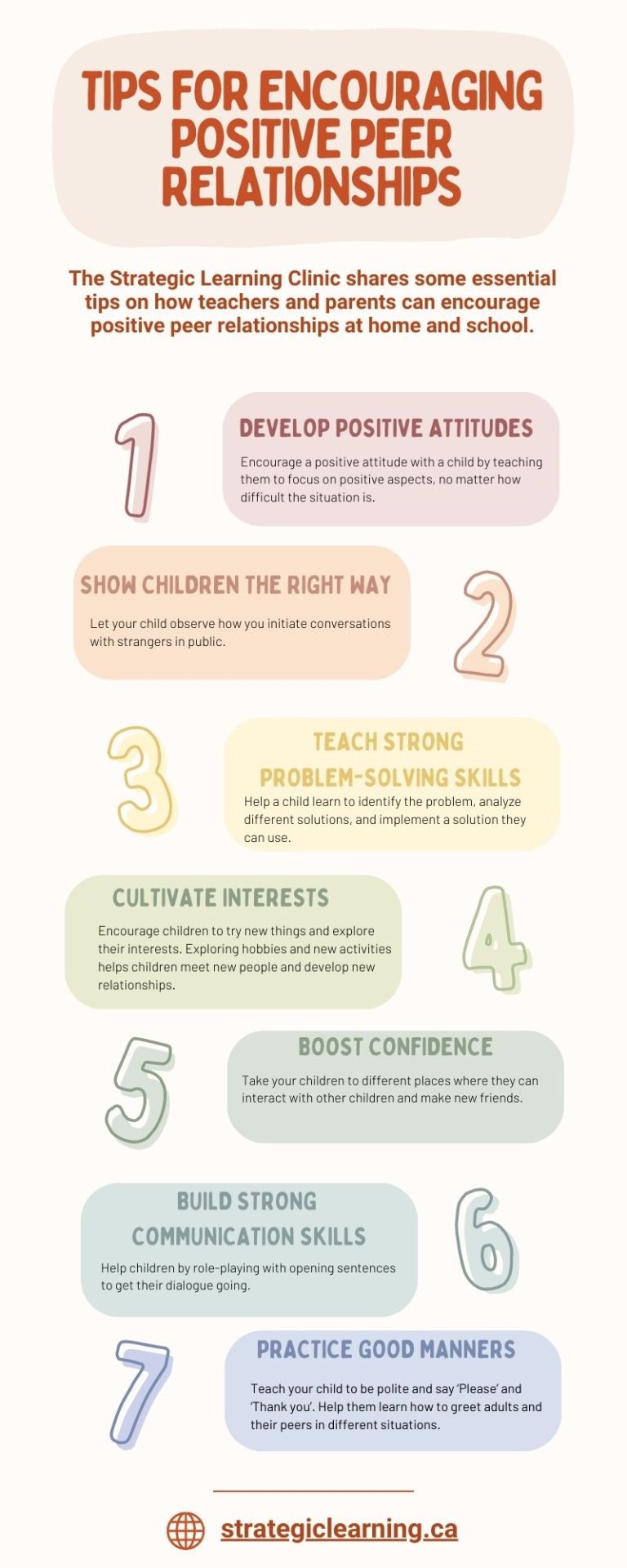
The Strategic Learning Clinic helps parents and teachers learn essential tips to encourage positive peer relationships at home and school. Visit our website for more information about online tutoring for kids, visit our website!
#online tutoring#strategiclearning#dyslexia#education#kidslearningcenter#learning#virtual tutoring#adhd#tutoring
0 notes
Text
https://strategiclearning.ca/adhd/
Strategic Learning offers ADHD tutoring programs to help students succeed. Our experienced tutors provide personalized attention and support to help your child build the skills and confidence they need to succeed academically. Contact us today to learn more about our ADHD tutoring programs for your child.
0 notes